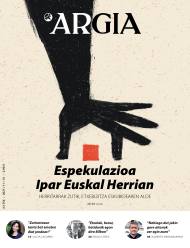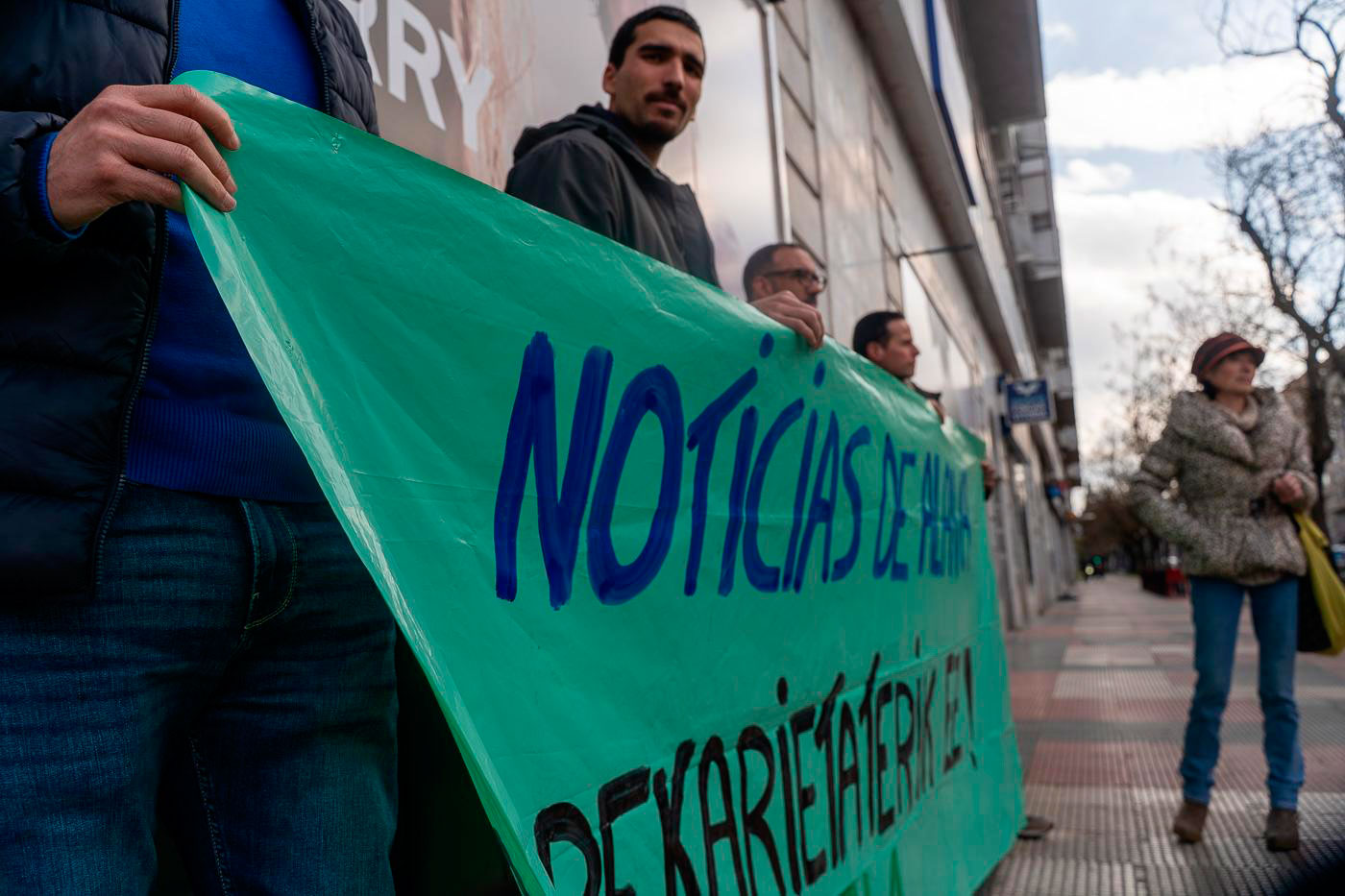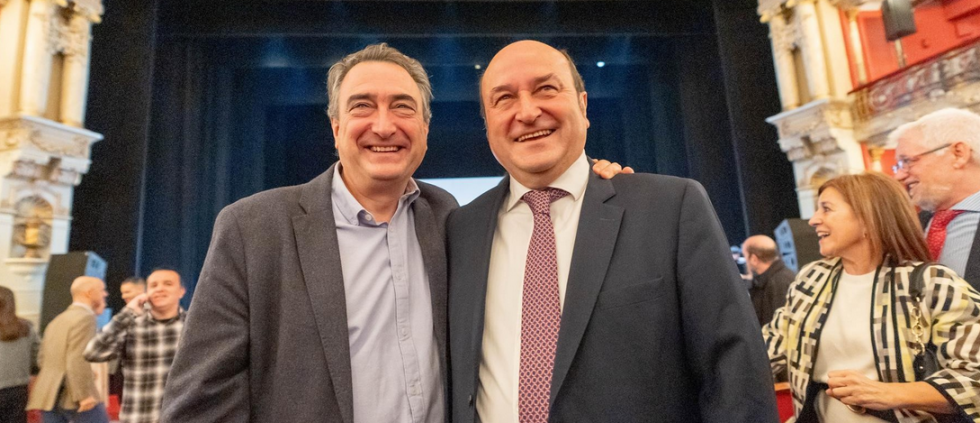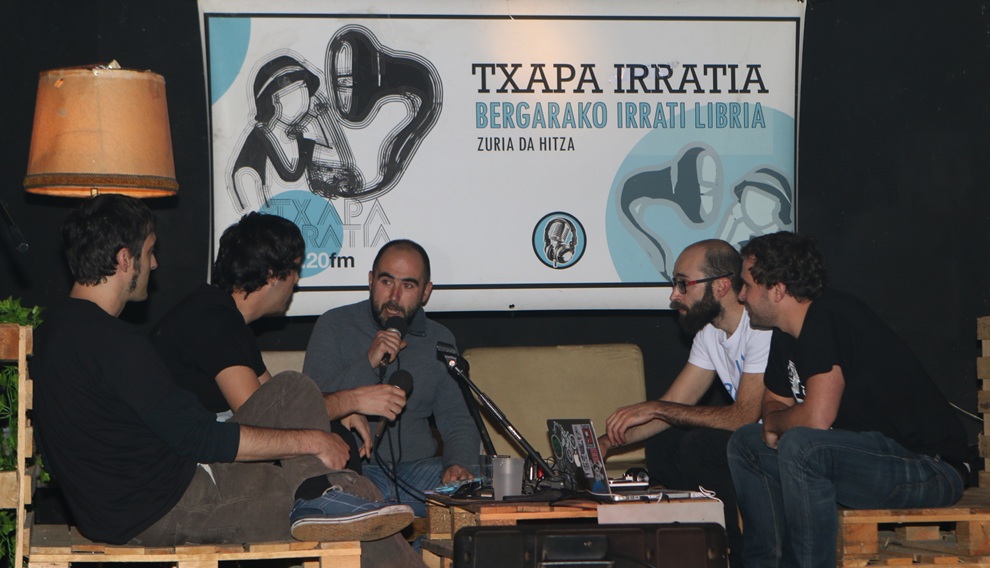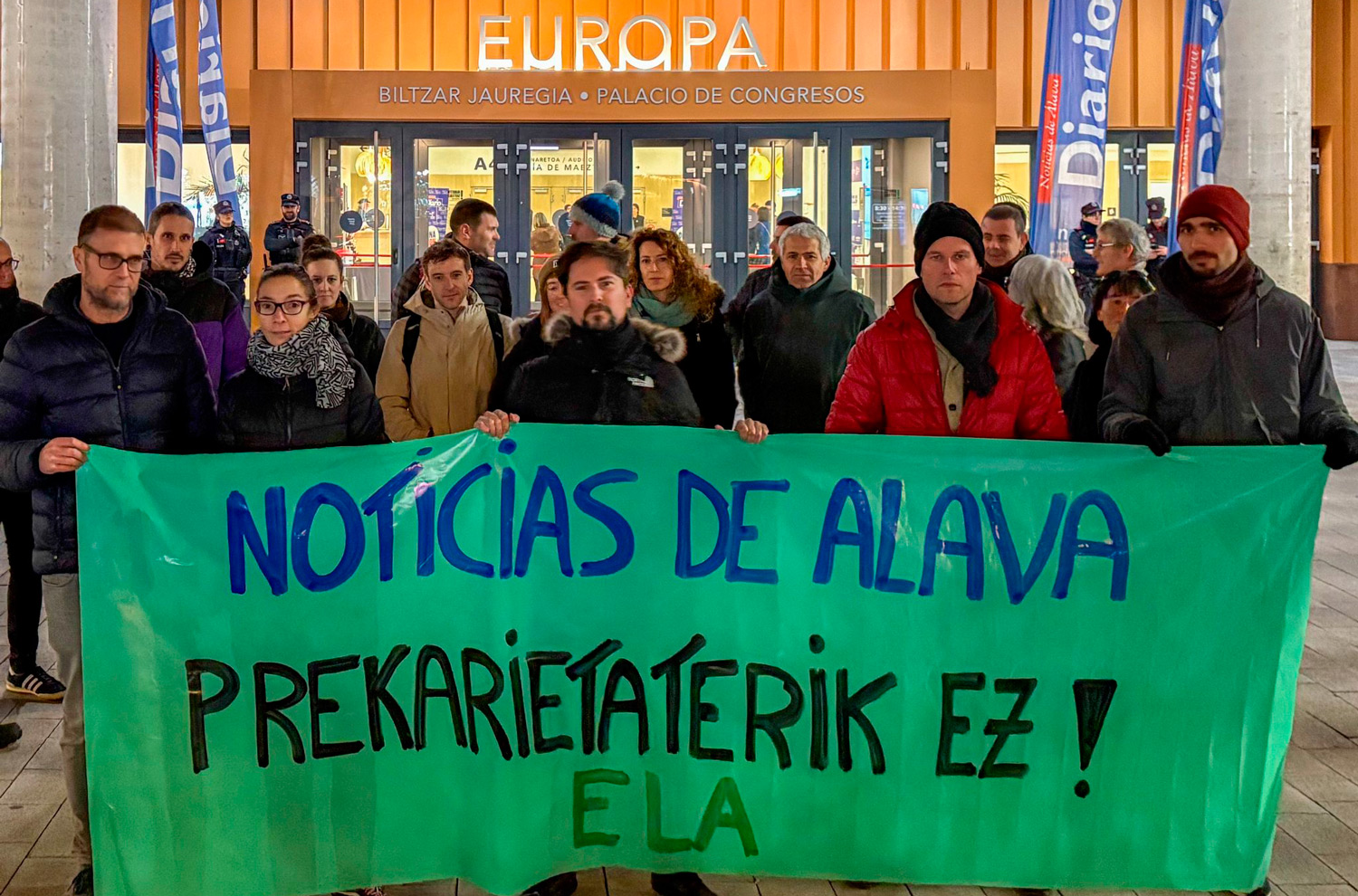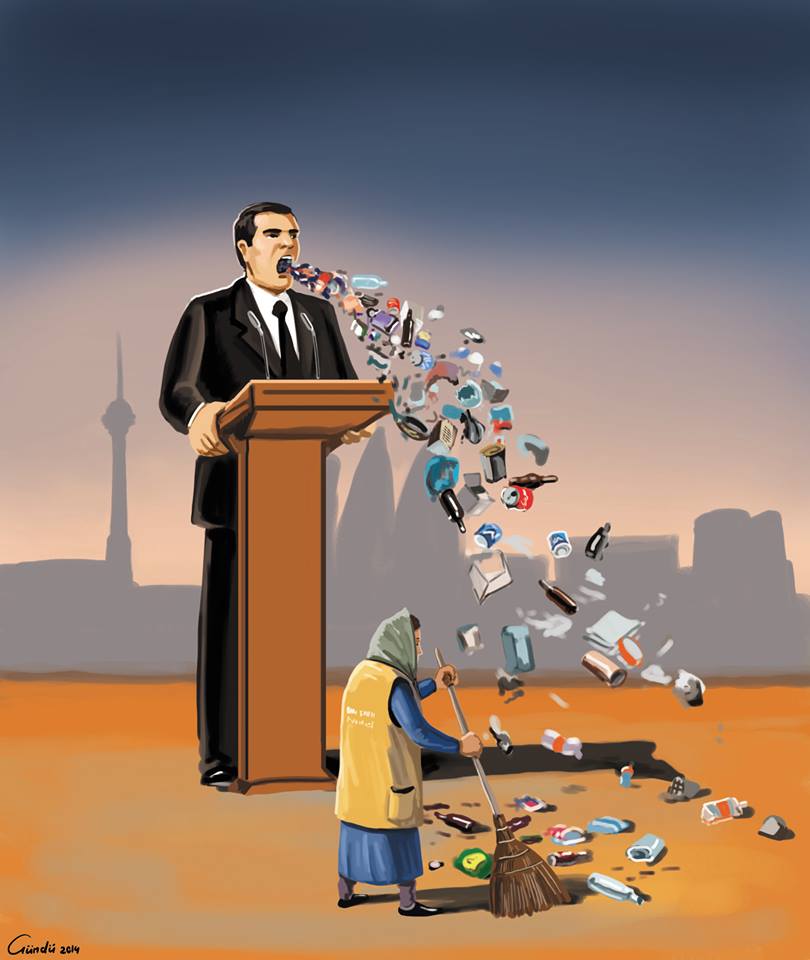Challenges for the future of the media
- Cutting-edge technological innovation means profound cultural change and difficult economic conditions for the future. How will all of this affect the media, models, ways of working and media content? All this in the days The Basque media on the road to innovation organized by Hekimen.

Evolution of consumer habits, 5G, fast translations, remodeling of business models... A new ecosystem emerges in the next few decades. The media, both in the Basque Country and internationally, will need to adapt to it if they want to survive. That's the challenge. How can the Basque media prepare for this future?
When the big media corporations dominate the information market, the Basque media finds themselves in a small dependence on public administrations. How can homogenizing trends and extreme competitiveness be maintained? What conditions will they find in the digital, professional or commercial sphere? In these days, Catalan experts Carmina Crusafon, Jordi Font i Morató and Genís Roca have offered some keys on these topics.
Carmina Crusafon: five challenges of local
journalism Carmina Crusafon, an expert in information sciences, is a professor at the Autonomous University of Barcelona. He said Five Challenges for Local Journalism. He believes that within four or five years local media will have as challenges positioning themselves in the digital ecosystem, redefining the business model formula, training digital journalists, caring for the community and fighting misinformation.
Regarding technological development, the expert mentioned the deployment of the 5G system. What will it do and what impact will it have on social life? “When the phone was invented, people were expected to use the phone to listen to the opera remotely.” 5G, as far as we know for the time being, seems to serve as “having eyes and ears on the Internet.” Car entertainment, autonomous vehicles, home and TV broadband, improved mobile media, advanced touch technology, augmented and virtual reality, cloud games... It will be the bread of every day in a few years' time.
Carmina Crusafon: "We should get used to not sharing unchecked content. For this, there are professional verifiers. But who's going to check the verifiers?"
He believes that the redefinition of the business model formula will be somewhat more complex. He recalled that 80 per cent of new businesses today fail at four years. He mentioned the financial funds of the media, the diversification of the funding model, the development of advertising, promotional content, subscriptions, digital commerce, small payments, donations, crowdfoundings and foundations. For Crusafon, “each community requires its own model.”
It also gave importance to the training of digital journalists. He stressed that young journalists are very emotional and do not plan their career beyond three years, but did not mention unemployment rates and temporary employment contracts for young people. Crusafone expects new generations to bring techniques, codes and creative habits that benefit “market niches”.
It also addressed the Community issue, emphasizing “the importance of identifying the way in which the audience prioritizes digital needs”, i.e. the content that prides both readers and viewers. “Technology provides us with tools to learn about this information.”
It considered it essential to combat misinformation, among the challenges of the media. Today, fake news has conditions for immediate mass broadcasting. That's why people believe more in local media. The concept of local media is something to be determined, however, many of them are branches of gigantic communication groups. On the other hand, there was talk about the importance of verifying the information, which should be used to “not sharing content without contrasting”. For that they say there are professional verifiers. But who is going to check the verifiers?
Jordi Font i Morató: the value of what we do, Jordi Font i Morató, works in the design of the digital
strategy of the media media Nace Digital and spoke about the management of innovation in the media. “Are newspapers needed today? What is a means of communication in 2021?” he asked rhetorically. He says that the media is “much more than newspapers.” Fonte helped us identify many trends within this phenomenon. In the balance between journalistic contents and personal aspects, for example, a profound problem is observed: “Can we only innovate with the journalistic aristocracy?” He warned that many famous and veteran journalists “impose their point of view on the profession and business.” In the same sense, “see many journalists and few experts” in the trade. He launched the reflection to be made by the media: “Does the product we produce have value?”
Jordi Font i Morató: "Many famous and veteran journalists impose their point of view on the profession and business"
In general, it is believed that little is said about the conceptualization of the product in the drafts. Of course, the mainstream media has worked more resources than classical journalism, while the little ones don't get there. Consequently, it foresees that small media should seek “specialization”.
The relationship between diglossal languages and journalism was also problematic by Font: “Everyone wants to save the language, yes, but with their particular project.” In this regard, he pointed out that behind the media acting in the same language there may be conflicting intentions, and that no one denies his language.
Genís Roca: Genís Roca is an
archaeologist and an internet expert. In his opinion, many of the problems mentioned are not exclusive to journalism, we are all undergoing profound changes, and in that sense he reminded us that much can be learned from other sectors.
We've gone from the Internet of Opinions to the Internet of Data. Thus, he warns that in the coming years the opinions of users and buyers will lose importance. They say that surveys, forums, comment boxes, etc. They will not be so important, because opinion is subjective and because data management is more interesting for companies that want to intervene effectively in reality. “This will keep us busy for the next ten years, because it radically changes business models.” He explained it with an example related to television: “When television programmers did surveys, they asked about the programs they liked. Most people said they liked documentary and serious cinema, but now, thanks to the algorithms of digital platforms, they know exactly what the audience sees and it’s more reliable.”
Genís Roca: "The mobile phone has inserted the expectation of being attended immediately and personalized. Failure to respond to real-time digital interaction produces a feeling of poor service"
Roca has also reported a significant phenomenon that the mobile phone has introduced culturally: “Expectation of immediate and personalized attention.” Every time there is a digital interaction, and if the answer doesn’t happen in real time, it says it causes a feeling of “bad service”: “Five years ago, when I wanted to spend a weekend with my partner and a Thursday night they sent an email to the hotel and they responded to me the next morning, it seemed like a great service.” Five years later, things overlap. “When I look for a hotel, I squeeze what I liked and while I raise my finger I expect confirmation. And if it doesn’t confirm it immediately, I click again, and if it doesn’t work, I’m looking for another.” The expert believes that this trend is going to prevail.
It provided further details on the actionable data. "It's terrible how many things are becoming data, but it's true." He put a curious example related to medicine. Before, in medicine the "reactive model" prevailed: “I don’t feel good, I’ll call the doctor.” A "proactive model" is envisaged: “The doctor has called me, told me that I will feel bad.” For example, because the data sent by the clock to the doctor tell me that I'm going to have a heart attack -- technically, by analyzing the biometric constants with the Iwatch, it seems that one of the hearts could be predicted half an hour earlier -- and they'll call me to warn me that the ambulance is on its way. Although the contribution of private data can generate opposing attitudes, for example when what is at stake is health, people gradually accept it.
In the future in which data, data and data are necessary, access to them will be through the confidence of the user. He warns that the creation of services offered with data obtained without consent generates mistrust on the part of the client. On the contrary, the creation of the service with the information voluntarily provided implies "comfort and satisfaction".
To access personalized services, he says that "scalable processes", "a business organization model that allows for profound changes" are needed. All of this, however, is too much for a single media. In his view, the key would be to talk to other sectors.

Martxoaren 14an Donald Trumpek agindu exekutibo bat sinatu zuen, hainbat berri agentziak jasotzen duten diru kopurua asko murrizteko. Kaltetuetako bat United States Agency for Global Media (USAGM) izan zen eta, ondorioz, Voice of America (VOA), Radio Free Europe/Radio Liberty... [+]
USAIDen inguruko txolopotearen ondoren, espero beharrekoa zen. Baina, hala ere, urte askotan haien jarraitzaileak izan garenok, samin-puntu batekin hartu dugu albistea. Martxoaren 15ean, Trump administrazioak, kolpetik, erabat itxi baitu United States Agency for Global Media... [+]
Gaur abiatu da Bizi Baratzea Orrian kide egiteko kanpaina. Urtaro bakoitzean kaleratuko den aldizkari berezi honek Lurrari buruzko jakintza praktikoa eta gaurkotasuneko gaiak jorratuko ditu, formato oso berezian: poster handi bat izango du ardatz eta tolestu ahala beste... [+]
Alemaniako Poliziak asteleheneko gertakariaren arrazoiak "politikoak" zirela baztertu duen arren, 35 urteko Alexander Scheuermann Ring Bund talde neonaziko kide zen. Bi hildako eta hamar zauritu utzi dituen atentatuaren egileak sare sozialetan "gorroto mezuak"... [+]
Lan baldintzen "prekarietatea" salatzeko kontzentrazioa egin zuten asteartean egunkariaren egoitzaren aurrean. Abenduaren 2tik sindaura greban daude langileak eta mobizlizazioak "areagotzea" erabaki dute orain.
Urtea baino gehiago da Olatz Simonek –EITBko berriemailea Parisen, garaian–, orrialde hauetan bertan ohartarazi zigunetik Bruselak kazetariari lanbideaz erakusten dionaz. Eta halaxe joan gatzaizkio galdezka Amaia Portugali. Bruselan gure irrati publikoak duen... [+]
Langileek salatu dute zuzendaritzak ez diela lan baldintzen gaiari heldu nahi izan eta enpresak nahiago izan duela Gaztea Sariak ekitaldia bertan behera utzi, “horrek sortutako albo-kalte ekonomiko eta sozial guztiekin”, arazoari irtenbidea eman baino.
Joan den asteartean La Vanguardia-n argitaratutako artikuluan egin zuen proposamena Txema Montero abokatu bizkaitarrak. 30 urtez Deia egunkariko kolaboratzailea izan da eta lehenik hara bidali zuen bere artikulua, baina egunkariak ez zion argitaratu.
Hemendik aurrera egunkarian soilik "norbanakoen askatasuna eta merkatu librea" sustatzen dituzten iritziak jasoko direla adierazi du enpresaburuak. Iritzi artikuluen zuzendariak hedabidea utzi duela ere argitaratu du.
Egitarau mardula prestatu dute Bergarako irrati libreko kideek: musika, literatura eta tailerrak. Besteren artean, martxoaren 29an Txapa Eguna egingo dute.
Diario de Noticias de Álava (DNA) egunkariko langileak sinadura greban daude, eta aspaldi ari dira beren lan baldintza “miserableak” eta horiek kazetaritzaren kalitatean duen eragina salatzen. 2013tik soldatak izoztuta dituzte, eta ordutik erosahalmenaren %30... [+]
Palestinan genozidioa, Europan gerra eta potentzia nuklearren artean tentsioa. Ez daukagu berri on askorik emateko, baina bada bat, hondamendi orokorretik eratorria, aipatzea merezi duena: aldeko baldintzak sortzen ari dira kontrainformaziorako, informazio independenterako,... [+]









